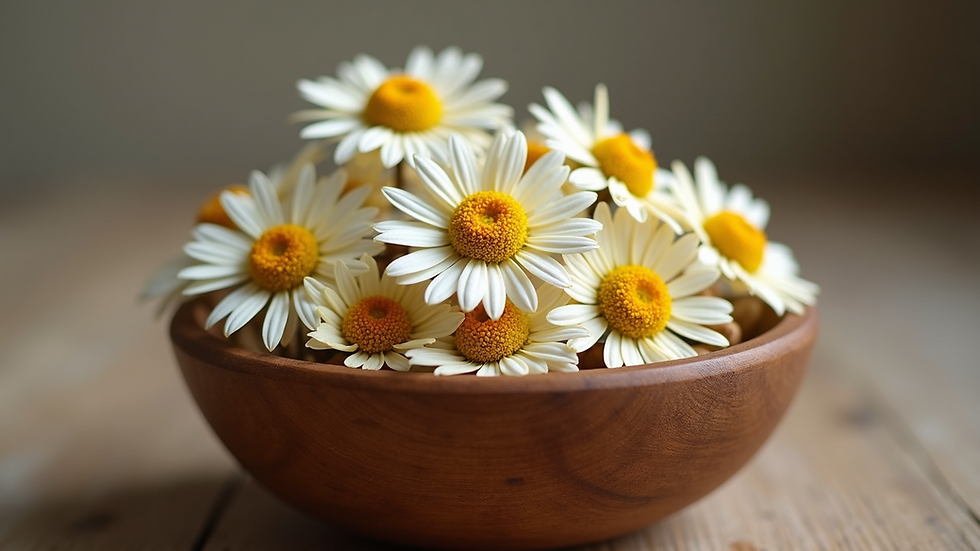Catching Good Zzzzzs
- herbsandsympathy
- Sep 19, 2024
- 3 min read

Sleep is one of the most neglected but precious commodities that our bodies need. It seems like as we age, sleep becomes more elusive. We want to sleep. We know we need sleep. We
feel panicked that we are getting enough sleep and it will mess with our day later when we cannot afford to sleep. Naps become a lovely little fantasy as we reach for an energy drink or our third cup of coffee when our reserves are waning half way through our work shift. What is happening to us and what can we do about it.
The first thing to consider is the reason or reasons why we are not sleeping and address those. Good sleep hygiene is essential. Some basic good hygiene practices include cutting off caffeine and energy drinks at a certain point, getting enough exercise, and integrating sleep rituals. Cut off stimulants at least 8 hours before bedtime, probably more like 10 hours if you have more than the usual trouble of falling asleep. You may want to forgo caffeine altogether and consider adding adaptogenic herbs like ginseng. Talk to an herbalist to determine which ginseng is best for you. Getting enough exercise doesn’t necessarily mean spending hours at the gym. It simply means moving enough throughout the day to raise your heart rate for 30 minutes or so. On your breaks or as part of your lunch time, change into your sneakers and take a 15 - 20 minute walk. You can walk after dinner. It may be easier to incorporate shorter spurts of activity and more naturally than adding a gym membership. However, if you need a gym membership to keep you accountable, do so. Finally, sleep rituals can play a valuable part in getting enough sleep. Following the same routine each night, not using electronic devices an hour before bed, or even heaven forbid, reading with low light are all considered sleep rituals. Websites like the National Sleep Foundation (https://www.thensf.org/) and the American Academy of Sleep Medicine (https://aasm.org/) are both great resources for getting better sleep.
Stress and pain are probably the top reasons why we can’t simply close our eyes and head to dreamland. Our brains continue to work even though our bodies have had enough. As noted above, adaptogens like ginseng can help us deal with stress during the day hours. Several other adaptogenic herbs which are just as potent such as ashwagandha but may be too stimulating to use in the evening. Another class of herbs are better suited for night time use. Nervines are plants that nourish our nerves and support the brain. Herbs like skullcap, passionflower, chamomile, hops, lavender, blue vervain will help relax the body and turn off the constant chatter or at least slow it down enough to ease into sleep. Some nervines will naturally minimize pain like California poppy, passionflower, valerian. Herbs can be used as a capsule, tincture, aromatherapy, salve, tea – so many more applications. So for example, I may spray my sheets very lightly with a lavender mist spray, drink a cup of sleep tea like listed below, turn on only a reading light, wear clothes only designated for sleeping and crawl into bed ready to read. I find that reading does tire my eyes without the blue light from my phone or ipad. I also may listen to an audible book with a timer set. I rarely get past ten minutes. Most of the time these efforts work, If I find I need extra support, I will add a blue vervain tincture or another sleep tincture or capsule. If you find that you need more, please reach out to us and consider scheduling a consultation to uncover other reasons you may not be sleeping. Hope this information gives you a good night sleep.
Sleepy Tea
2 teaspoons German Chamomile flowers
1 teaspoons Passionflower
1 teaspoon Skullcap
.25 tsp of stevia
4 cups of water
Boil water and pour over herbs. Steep for 10-15 minutes. Strain and serve. This will make about four cups. You can mix the dry herbs together and use just one teaspoon for one cup. Stevia is optional. Use any sweetener of your choices.



Comments